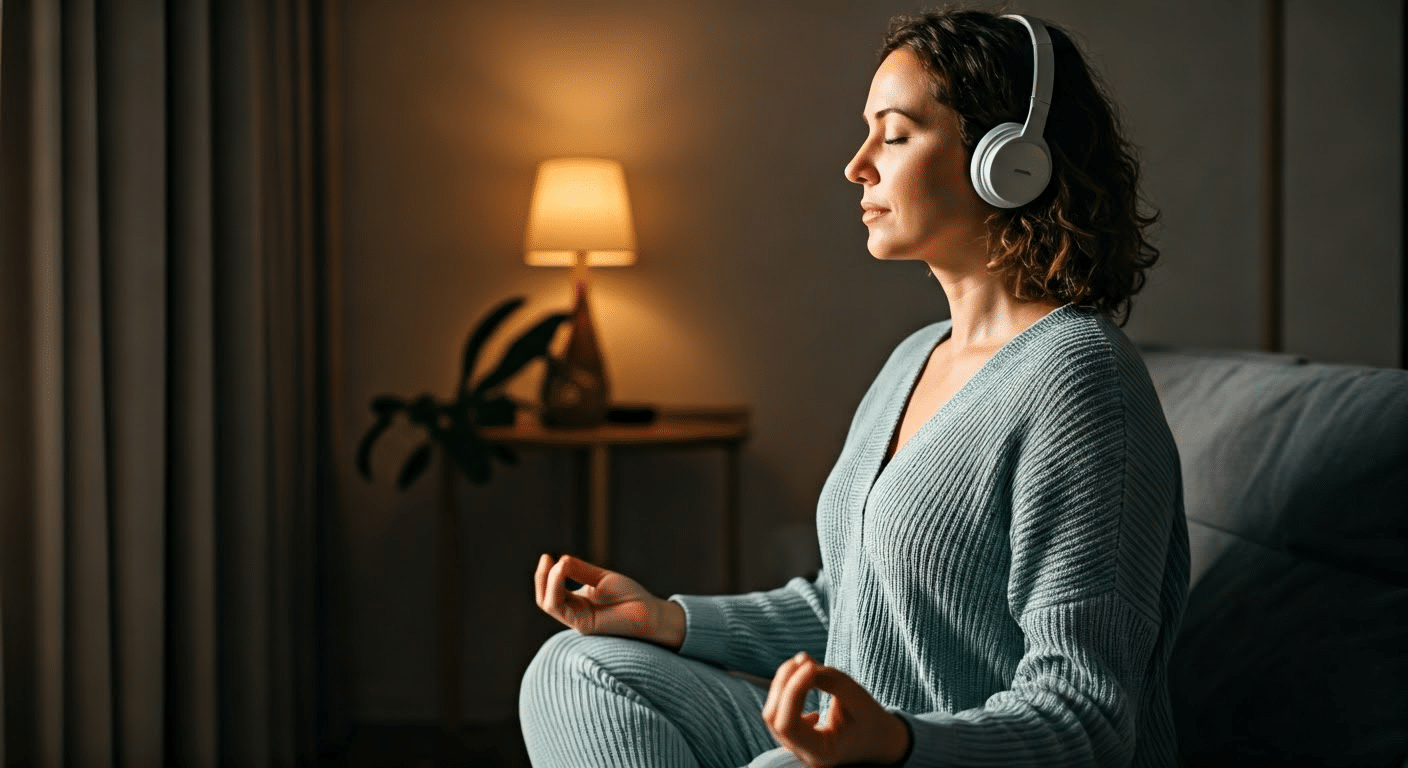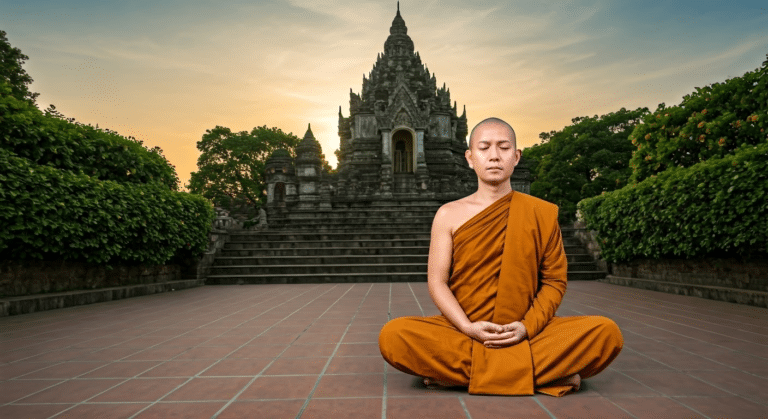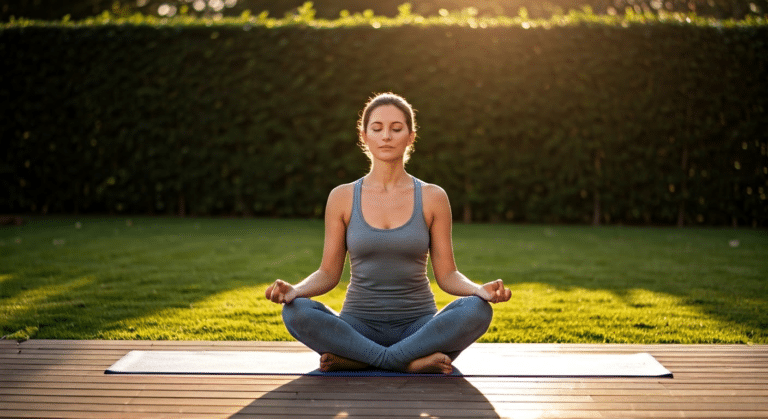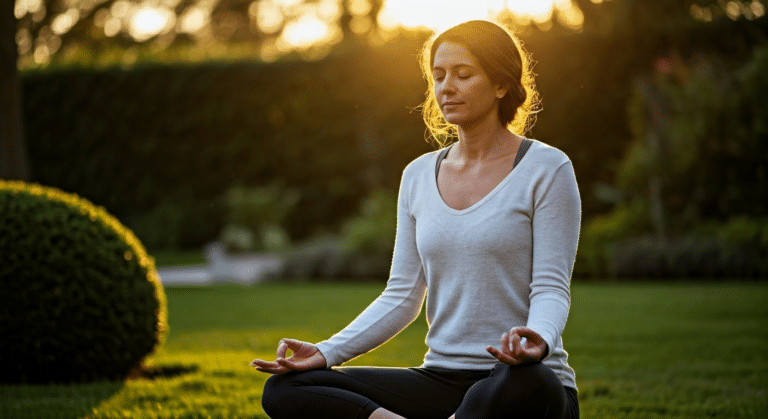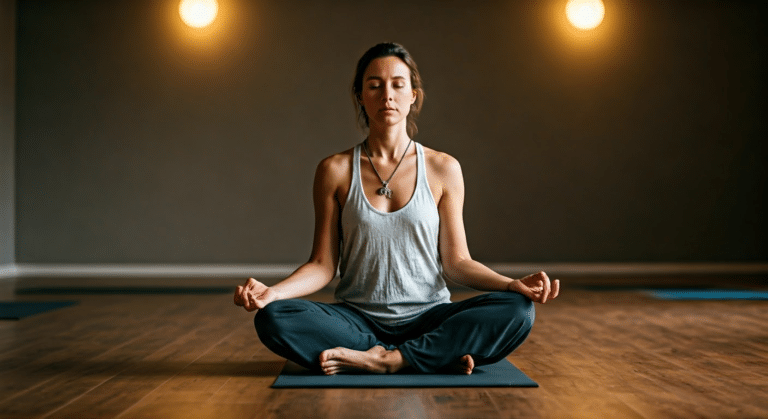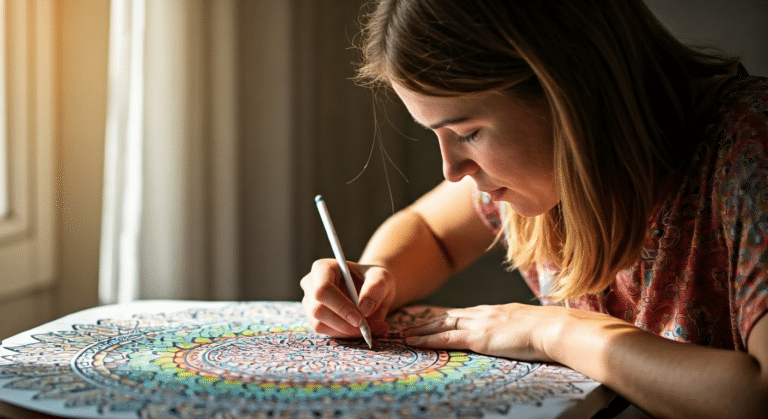What Is Guided Meditation
Last Updated on February 26, 2025 by Teodor Brebeanu
Contrary to popular belief, what is guided meditation offers more than just a path to relax. In my experience, it’s a powerful tool for enhancing self-awareness and promoting stress relief. Guided meditation has gained traction due to its many benefits, helping individuals navigate the chaos of modern life. This article will explore these aspects, diving into how guided meditation can transform both mind and body. How I Revolutionized My
As someone who’s practiced guided meditation, I’ve found it essential for maintaining mental balance. This piece will cover the importance of meditation today, offering insights into its practice and effectiveness. We’ll look at various methods, uncovering how they can be tailored to individual needs. Let’s delve into this journey and discover the transformative power of guided meditation together.
Understanding Guided Meditation

You might be wondering, what is guided meditation, and how does it differ from other meditation practices? At its core, guided meditation is a form of meditation where an individual is led by a guide or teacher, either in person or through recorded instructions. This contrasts with silent meditation, where practitioners rely on their own internal guidance without external input. Read more: Yogajournal.
The role of the guide in a guided meditation session is crucial. They provide a structured path for the mind to follow, which can greatly enhance focus and relaxation. This guidance often includes visualization techniques, breathing exercises, and suggestions for achieving a deeper meditative state. Through my own experiences, I’ve found that having a guide can significantly reduce stress levels and promote a sense of well-being.
Compared to other methods, guided meditation offers distinct proven benefits. For instance, while mindfulness meditation focuses on maintaining awareness of the present moment, and loving kindness meditation aims to cultivate compassion and self compassion, guided meditation provides a specific narrative that can make the process more accessible for beginners. This method is particularly beneficial for those who find it challenging to sit in silence or who struggle with maintaining focus during meditation.
Moreover, research from institutions like the Massachusetts Medical School supports the benefits of guided meditation, showing it can effectively reduce stress and enhance mental clarity. By integrating these practices into our daily routine, we can experience profound improvements in mental and emotional health. Ultimately, understanding what is guided meditation can open new pathways to personal growth and well being. Transform Your Types Of
How Guided Meditation Works

Specialists often point out that guided meditation provides a structured approach to achieving relaxation and focus. In a typical session, the process begins with finding a comfortable position, which is crucial for preventing physical distractions. As I settle down, the guide gently directs my attention inward through a soothing voice, often available in guided meditation videos, setting the stage for deeper exploration. Read more: Reddit.
The next step involves visualization, where the guide paints vivid mental images. This technique helps me meditate without wandering thoughts, fostering a sense of presence. Visualization is integral as it not only focuses the mind but also brings about a profound sense of inner peace. With regular practice, achieving this state becomes almost second nature, making a big difference in daily stress levels.
Guided meditation resources often include elements like body scan meditation, which methodically relaxes each part of the body. This is especially helpful when trying to fall asleep, as it eases physical tension. Loving kindness exercises, a part of this journey, encourage compassion towards oneself and others, further nurturing inner peace.
Throughout my experience, having a meditation teacher guide me has been invaluable. Their expertise ensures that each session is tailored to address specific needs, enhancing both focus and relaxation. By integrating these steps, guided meditation becomes a reliable tool for mental clarity and emotional balance, leading to a more harmonious life.
Latest Insights and Developments
Guided meditation continues to gain popularity as a tool for mental well-being. As of 2025, numerous studies and developments have highlighted its benefits and widespread adoption. Below are the latest insights and developments in guided meditation. From Novice to Quantum
Key Research Findings
Recent studies have revealed several crucial insights about guided meditation:
- A Harvard study found that guided meditation can reduce stress by 30% after eight weeks.
- Research from the University of Oxford showed it significantly improves focus and attention.
- Guided meditation has been linked to better sleep quality, according to a 2024 Stanford report.
Important Statistics
Recent data underscores the impact and reach of guided meditation:
- Global usage of guided meditation apps increased by 25% from 2023 to 2025.
- 85% of users report lower anxiety levels after regular practice.
- Over 60 million people worldwide are now using guided meditation apps.
Latest Developments
Notable recent advancements in guided meditation include:
- Launch of AI-driven guided meditation apps for personalized experiences.
- Integration of virtual reality for immersive meditation sessions.
- Expansion of guided meditation in corporate wellness programs.
Overall, guided meditation is increasingly recognized for its mental health benefits, supported by research, growing adoption, and technological advancements.
The Pregnancy Meditation Breakthrough
Benefits of Guided Meditation
Let’s explore why guided meditation holds such promise for enhancing both mental and physical well-being. One clear benefit is the improvement of mental clarity and focus. This practice allows individuals to disconnect from daily distractions, fostering a deeper connection with their inner selves. As someone who has embraced guided meditation, I’ve noticed a marked increase in my ability to improve focus during tasks that require concentration.
Building on this, guided meditation is renowned for its ability to reduce stress. The process of meditating involves focusing on your breath, which naturally leads to a state of relaxation. This deep relaxation helps in alleviating the mental burden that often accompanies a stressful lifestyle. In fact, meditation experts assert that regular sessions can significantly lower stress levels over time.
Moreover, guided meditation offers several benefits beyond mental clarity. It can be a powerful tool for personal growth and self-awareness. During a meditation session, you might gain insights into your thoughts and emotions, which can be transformative. This self-awareness is pivotal for personal development, as it encourages a deeper understanding of one’s motivations and desires.
Notably, the practice of guided meditation takes practice. It requires patience and consistency to reap the full benefits. However, the journey is rewarding, offering a path to enhanced mental clarity and emotional balance. As you continue to explore this practice, you’ll likely discover its profound impact on your overall well-being.
- Mental and physical health benefits
- Stress relief and relaxation
- Personal growth and self-awareness
Different Types of Guided Meditations
Based on extensive research, guided meditations come in various forms, each offering unique benefits. For instance, loving-kindness meditation focuses on cultivating compassion and kindness towards oneself and others. This practice not only enhances emotional well-being but also plays a significant role in personal growth by fostering deeper connections and empathy. From Novice to Meditation
Another popular form is body scan meditation, which is designed to promote relaxation and increase body awareness. By slowly focusing on different body parts, this meditation helps alleviate stress and tension, creating a calm state of mind. It is particularly effective for those seeking better sleep, as it encourages the release of daily stressors.
Mindfulness meditation is another vital type, helping practitioners maintain awareness of the present moment. This practice not only aids in achieving a calm state but also enhances focus and clarity. To start, find a comfortable space where distractions are minimal, and dedicate a few moments to fully engage with the meditation. This approach is accessible through various resources, including online videos and apps like Insight Timer, which guide users through different sessions.
Each type of guided meditation offers distinct advantages, making it easier to choose one that aligns with personal goals. Whether it’s for cultivating kindness, fostering awareness, or finding calm, these practices provide valuable tools for enhancing mental well-being. By integrating these into daily routines, one can experience profound personal growth and a more centered life.
Practical Steps to Practice Guided Meditation
While many think setting up a meditation space is simple, it’s a crucial step to truly immerse yourself in the practice. Choose a quiet area where you feel comfortable and can fully engage with the present moment. Soft lighting and a cozy cushion can transform any corner into a serene sanctuary. As you settle in, take a deep breath and let your body feels at ease, ready to embark on this journey.
Once your space is ready, the next step is selecting the right guided meditation resources. Whether it’s an app, a video, or a podcast, having a focal point helps maintain focus. Opt for resources that resonate with your goals, such as reducing anxiety or enhancing mental health. A good session will guide you through the process, often incorporating techniques like a body scan to heighten awareness of physical sensations. Mastering Meditation Sitting Position:
Maintaining a regular meditation practice can significantly reduce stress levels. Consistency is key, and setting a specific time each day creates a habit. You might find morning or evening works best for you. To keep it engaging, vary your sessions by exploring different guided meditations. This practice not only grounds you in the present moment but also serves as a powerful tool for self-discovery.
Incorporating these steps into your daily routine can enhance your overall well-being. Remember, guided meditation is not just about quieting the mind but also about exploring the depths of your inner self. By dedicating time to this practice, you invest in a healthier, more balanced life.
Guided Meditation for Beginners
Have you ever wondered why some people find it easier to practice meditation than others? For beginners, the journey into meditation can seem daunting, but starting with guided meditation can make the process smoother. One critical starting tip is to set aside just a few minutes each day. Consistency is key, and with time, this practice can seamlessly integrate into daily life.
Common challenges like wandering thoughts or difficulty in maintaining focus can be frustrating. However, experienced practitioners often emphasize the importance of patience and self-compassion. Remember, even the most seasoned meditation teachers started as beginners. When distractions arise, gently bring your focus back to your breath or the guided voice.
Resources play a vital role in your meditation journey. There is a plethora of online tools available, from apps to YouTube channels, that can help you reduce stress and enhance mindfulness. These resources are particularly useful for understanding different techniques and styles. To access the full benefits of meditation, explore various guided sessions that suit your needs.
Additionally, it’s essential to consider the impact of meditation on physical health. Studies suggest that regular practice not only boosts mental clarity but also contributes positively to physical health. This naturally brings us to the value of mindfulness, which intertwines with meditation to foster a well-rounded sense of well-being.
In conclusion, starting with guided meditation offers a supportive framework for beginners. By focusing on small, consistent steps, you can reduce stress and cultivate a more mindful approach to life. As you gain confidence, these sessions will become an integral part of your daily routine, benefiting both your mental and physical health.
Addressing Common Misconceptions
Recent studies reveal that many misconceptions surround guided meditations, often blurring the lines between this practice and hypnosis. While both involve a state of relaxation, guided meditations are designed to enhance mental clarity and focus, distinct from hypnosis, which typically aims to access the subconscious mind.
Building on this concept, it’s important to dispel common myths that paint guided meditations as overly complicated or only for experienced practitioners. In reality, guided meditations are perfect for beginners, offering a structured approach that can be easily followed. A few seconds of deep breathing can set the stage for these sessions, gradually leading to longer periods of calm.
Moreover, research highlights the tangible benefits of guided meditations on mental and physical health. For instance, body scans are a popular technique that helps individuals become more aware of their body, reducing stress and promoting relaxation. This evidence-based insight underscores the practice’s role in improving overall quality of life.
Adding to this insight, guided meditations encourage peace by helping individuals connect with their inner selves. This connection can lead to enhanced mental peace and a more balanced life. For beginners, these practices offer a gentle introduction to meditation, paving the way for deeper exploration.
Ultimately, the benefits of guided meditations extend beyond relaxation. They play a significant role in enhancing mental and physical health, making them accessible and beneficial for everyone, regardless of experience level. By understanding these distinctions, one can appreciate the unique value guided meditations bring to daily life.

